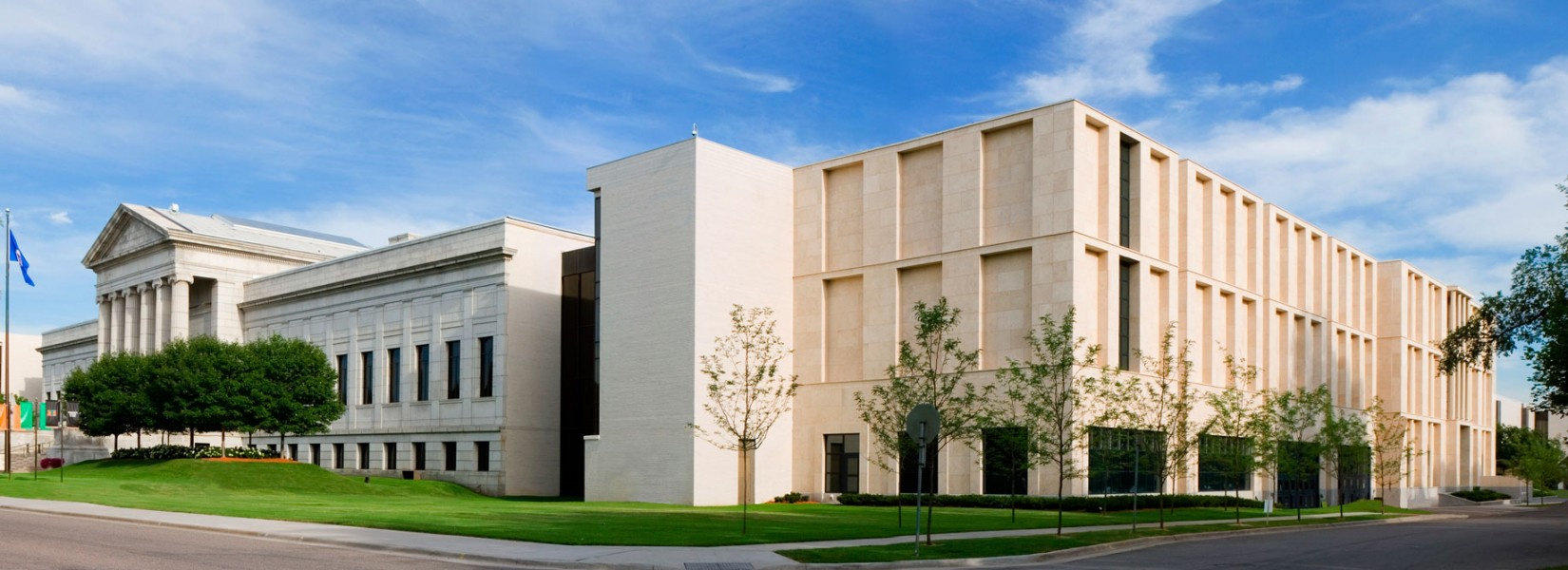log in
Enter site
Login to use Arthive functionality to the maximum
In 1883, twenty-five citizens of Minneapolis founded the Minneapolis Society of Fine Arts, committing them to bringing the arts into the life of their community. More than a century later, the museum they created, the Minneapolis Institute of Art, stands as a monument to a remarkable history of civic involvement and cultural achievement.
Designed by the preeminent New York architectural firm McKim, Mead and White, the original building opened its doors in 1915. A neoclassical landmark in the Twin Cities, the museum expanded in 1974 with an addition designed by the late Japanese architect Kenzo Tange. In June 2006, the museum unveiled a new wing designed by architect Michael Graves.
The Target Wing was the result of a major renovation and expansion that included thirty-four new galleries, increasing exhibition space by 40 percent. The expansion included a new Lecture Hall, Photographs Study Room, Print Study Room, and an Art Research Library in a more visible location. The Graves design respectfully combined the neoclassical elegance of the original McKim, Mead & White 1915 building with the minimalism of Tange’s 1974 addition.
Mia’s permanent collection has grown from 800 works of art to more than 89,000 objects. The collection includes world-famous works that embody the highest levels of artistic achievement, spanning about 20,000 years and representing the world’s diverse cultures across six continents. The museum has seven curatorial areas: Arts of Africa & the Americas; Contemporary Art; Decorative Arts, Textiles & Sculpture; Asian Art; Paintings; Photography and New Media; and Prints and Drawings.
Mia is one of the largest arts educators in Minnesota. More than a half-million people visit the museum each year, and a hundred thousand more are reached through the museum’s Art Adventure program for elementary schoolchildren. The museum’s free general admission policy, public programs, classes for children and adults, and award-winning interactive media programs have helped to broaden and deepen this museum’s roots in the communities it serves.
Source: new.artsmia.org
Designed by the preeminent New York architectural firm McKim, Mead and White, the original building opened its doors in 1915. A neoclassical landmark in the Twin Cities, the museum expanded in 1974 with an addition designed by the late Japanese architect Kenzo Tange. In June 2006, the museum unveiled a new wing designed by architect Michael Graves.
The Target Wing was the result of a major renovation and expansion that included thirty-four new galleries, increasing exhibition space by 40 percent. The expansion included a new Lecture Hall, Photographs Study Room, Print Study Room, and an Art Research Library in a more visible location. The Graves design respectfully combined the neoclassical elegance of the original McKim, Mead & White 1915 building with the minimalism of Tange’s 1974 addition.
Mia’s permanent collection has grown from 800 works of art to more than 89,000 objects. The collection includes world-famous works that embody the highest levels of artistic achievement, spanning about 20,000 years and representing the world’s diverse cultures across six continents. The museum has seven curatorial areas: Arts of Africa & the Americas; Contemporary Art; Decorative Arts, Textiles & Sculpture; Asian Art; Paintings; Photography and New Media; and Prints and Drawings.
Mia is one of the largest arts educators in Minnesota. More than a half-million people visit the museum each year, and a hundred thousand more are reached through the museum’s Art Adventure program for elementary schoolchildren. The museum’s free general admission policy, public programs, classes for children and adults, and award-winning interactive media programs have helped to broaden and deepen this museum’s roots in the communities it serves.
Source: new.artsmia.org


